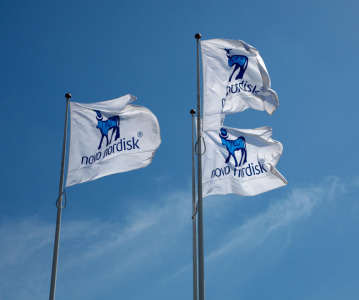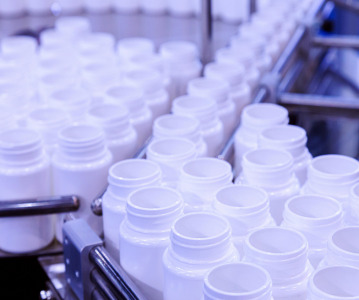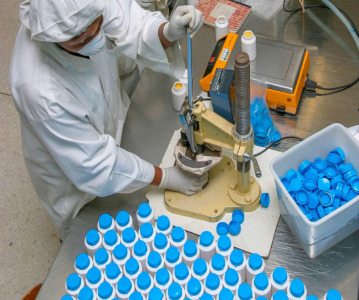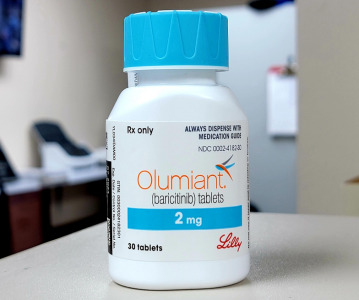Smart packaging solutions to COVID-19 counterfeiting

Developments in smart packaging can add value to the pharmaceutical supply chain and help to tackle the threat of counterfeit products as the race towards producing a COVID-19 vaccine heats up
Dr Alex Cole, Senior Strategic Marketing Manager, CPI
The first case of COVID-19 was reported in December 2019, and since then the novel virus has rapidly spread across the globe. The disease, caused by SARS-CoV-2, an RNA-base virus in a lipid shell, has had a huge impact. According to the World Health Organisation (WHO), as of 17th August 2020, there were 21,516,760 confirmed cases of COVID-19, with 766,663 deaths confirmed to have resulted from infection and these numbers will only continue to grow. Public health measures, including workplace and leisure restrictions, have had a significant impact on daily life and the global economy, causing a global recession.
Developing a vaccine to protect against COVID-19 is crucial to ensure the health of both the population and the economy. There are currently 139 vaccines in pre-clinical evaluation and 28 in clinical evaluation (WHO, correct as of 10th August 2020). Among these is the LNP-nCoVsRNA vaccine developed at Imperial College London – supported by CPI – which is currently undergoing its second round of human trials. In addition to vaccine development, research has focused on creating increasingly rapid and reliable tests for SARS-CoV-2, with the global market for COVID-19 diagnostics valued at USD 60.3 billion in 2020 (BCC Research).
The race towards producing accurate and rapid testing kits, effective treatments, and a COVID-19 vaccine, has unfortunately been paralleled with the emergence of many counterfeit products. To help address the growing challenge of counterfeiting associated with the development of vaccines and diagnostic tests, additional security and verification measures must be developed to ensure product validity. One area of the supply chain that is being developed to tackle this threat is packaging.
The threat of counterfeit medicines
It is clear that the market for vaccines, tests and treatments is huge. As a result of this, counterfeit products are beginning to emerge, with seizures of counterfeit tests as well as counterfeit and unapproved COVID-19 treatments occurring in the US since March (US Customs and Border Protection). Since 5th June 2020, hundreds of counterfeit or unapproved COVID-19 test kits and antibody diagnostic kits have been seized across several US ports. In addition, US Customs and Border Protection seized over 2,000 doses of unapproved COVID-19 treatments in this time. These products may pose a significant risk to public health, as they are not approved or regulated in any way. It is anticipated that this problem will increase once vaccines have been released for widespread use, resulting in the circulation of counterfeit vaccines with potentially serious health implications. It is therefore essential to create ways to ensure approved products can be identified by users.
Smart packaging to ensure authenticity
In order to tackle the serious threat of non-regulation COVID-19 products, smart packaging can be used to provide verification of authenticity for users. Smart packaging involves adding additional components, such as printed electronics, to standard packaging to provide improved functionality. Serialisation is a legal requirement in many global jurisdictions, however new innovations are coming to market to provide additional levels of security.
Currently there are several technical anti-counterfeiting solutions available, notably a smart packaging system currently on the market from Jones Healthcare Group, in collaboration with NXP Semiconductors and TPG Rewards. The collaboration has recently announced the commercialisation of a product line of ‘Intelligent COVID-19 Test Kits’ which utilise near field communication (NFC).
Each kit is embedded with an NFC tag which can be tapped by the user’s smartphone to verify the kit.
According to Jones Healthcare Group, the user will be able to verify that the kit is unopened and has been manufactured under compliant conditions, and to ensure the kit is still verified and effective they will be able to check the recall status. In addition to these anti-counterfeiting measures, the NFC tag will allow users to easily view usage instructions in multiple languages across a broad range of media, including images, audio and video tutorials. These features will add value to the product by improving its functionality and ease-of-use as well as allowing users to verify the authenticity of the kit.
Added value from smart features
In pharmaceutical products, smart packaging can provide additional value to the user, but it can also add significant value throughout the supply chain. Printed electronics within packaging can provide digitally connected, cloud-based anti-counterfeiting and anti-tampering functions, as well as offering features such as unit level track and trace and environmental monitoring. A smart tag applied to, or embedded within, packaging can enable two-way communication via smartphones or wireless gateways (Including LPWAN, BTLE and various mobile phone frequencies) at every point in the supply chain – from production to patient.
This would allow the measuring, logging and communication of the environmental conditions the package has been subjected to, including factors such as temperature, humidity and physical impact. This information can be used to ensure medicines have remained within the correct environment, which is especially important for many vaccines. With these features, smart packaging can enable more efficient supply chains with greater transparency, security and reduced losses. The development of these smart features will be instrumental in the production and use of COVID-19 vaccines, treatments and testing kits, but will also add value more widely across pharmaceutical manufacturing.
Come and talk to CPI to develop new proof-of-concept smart packaging concepts and products. We can take the innovation right through, from design to market seeding volumes. We are happy to signpost you where an innovation already exists, and if you are creating something new, choose us as your innovation partner.
Related News
-
News Women in Pharma: Moving beyond discussions and into best practice at CPHI Milan
In this second CPHI Milan special of our monthly series, we cover the key takeaways from the Diversity & Wellbeing track held on October 10, 2024. -
News AstraZeneca invests in AI collaboration for cancer drug trials
The British-Swedish pharmaceutical giant is partnering with biotechnology firm Immunai Inc to increase the efficiency of some cancer drug trials. -
News Ozempic and Wegovy prices questioned as Novo Nordisk faces US Senate hearing
The CEO of Novo Nordisk was grilled during a US Senate committee hearing on September 24, 2024, in which the exorbitant prices of the Danish company’s blockbuster drugs Ozempic and Wegovy were called into question. -
News The BIOSECURE Act: implications for the pharma supply chain
On September 9, 2024, the US House of Representatives voted to pass the bill titled the BIOSECURE Act (the Act), which lists several Chinese companies in the pharmaceutical supply chain. The Act will prohibit American companies from contracting or doin... -
News On Track at CPHI Milan: Thermo Fisher Scientific Track Sponsor interview
With CPHI Milan just around the corner, we sat down with some of the sponsors for this year’s conference tracks to discuss the most pressing topics in pharma. -
News CPHI Milan Speaker Spotlight: Pharma Manufacturing and Localisation in Africa
In the run-up to CPHI Milan, we sit down with some of the experts and thought-leaders speaking at this year’s conferences. -
News US BIOSECURE Act passed by US House of Representatives
The controversial act, which has already impacted several foreign companies operating in the US, was passed by the House of Representatives on September 9, 2024. It is now headed for the US Senate before it can be signed into law by President Joe Biden... -
News Eli Lilly licenses rheumatoid arthritis manufacturing in Africa
American pharmaceutical company Eli Lilly has signed a partnership with Egyptian organisation Eva Pharma to localise manufacturing of rheumatoid arthritis treatments in Africa.
Position your company at the heart of the global Pharma industry with a CPHI Online membership
-
Your products and solutions visible to thousands of visitors within the largest Pharma marketplace
-
Generate high-quality, engaged leads for your business, all year round
-
Promote your business as the industry’s thought-leader by hosting your reports, brochures and videos within your profile
-
Your company’s profile boosted at all participating CPHI events
-
An easy-to-use platform with a detailed dashboard showing your leads and performance

.png)





